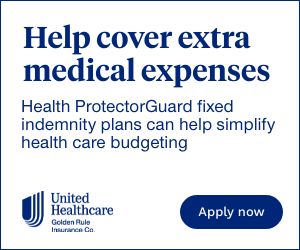Really want to retire early? Here’s what you’ve got to do first.

If you’re ready to turn the page on your 9-to-5 working life, make sure you check these boxes before you quit for good.
Whether you got into crypto early and made a small fortune, or you’re simply burned out from your job, early retirement can sound incredibly appealing. In fact, about half of all adults ages 55 and older have done exactly that, according to a 2021 Pew Research Center report.
But leaving work behind for good requires careful thought and planning, stresses Jennifer R. Lee. She’s a financial adviser with Modern-Wealth LLC in Sarasota, Florida.
“I often find that my clients in their early 50s come to me in a bit of a panic. They want to retire early, but they aren’t sure they have the means to do it. I call this crunch time,” she explains. This is one decision you don’t want to make lightly. Here are six boxes to check off before you take the plunge.
Early retirement must-do #1: Figure out other sources of income
While you might think you’ll just tap into retirement accounts, doing so early could cost you. “If you withdraw from an IRA retirement account before the age of 59½, you’ll be charged a 10% penalty fee as well as income tax,” points out Lee.
If you plan to retire before then, make sure you have other sources of passive income that can pay your yearly living expenses. You’ll also want to plan for an additional 3% to 5% to cover inflation, she notes.
There are ways to draw from retirement accounts without incurring a penalty. If you have a 401(k), you can withdraw money from it once you turn 55 without having to pay any penalty, notes Lee. “This is called the rule of 55. You cannot do this once you have rolled your 401(k) into an IRA.”
If you just have an IRA, you may also be able to use some of the money before age 59½ without penalty in certain circumstances. For instance: You can use it to pay for major healthcare costs that aren’t covered by your insurance (the fees must exceed 10% of your adjusted gross income, though).
Early retirement must-do #2: Tap into your borrowing power
“Most borrowing is primarily based on income,” points out Rebecca Awram, a mortgage adviser at Seniors’ Lending Centre in Vancouver, British Columbia. “Once you retire, your borrowing power will dramatically reduce, unless you have a considerably large pension.”
One good option, she suggests, is opening a line of credit: “It doesn’t incur any monthly interest expense if you don’t use it. But it’s there as a safety net if you require it,” she explains. “Yes, if you tap into it in the future, it will incur an interest expense. But if an emergency arises, or if you need to help your family, then it’s there for you.”

Early retirement must-do #3: Tweak your investment mix
“As you near retirement, a good rule of thumb is to have at least 70% of your investments in lower-risk options such as government bonds and CDs (certificates of deposit) instead of more volatile and higher-risk stocks,” recommends Guadalupe Sanchez. She’s the founder of the financial advice website Budgeting in Blue.
You should also make sure your investment account mix is dependent on your individual needs. That includes when you plan to retire and how much you expect to withdraw each year. It’s important to meet with a professional who can better guide your decisions, she adds.
Early retirement must-do #4: Make sure you have enough life insurance
Only a little more than half of all American adults reported having life insurance in 2021, according to LIMRA’s Facts About Life 2021. If you’re considering retiring early, make sure you have a life insurance policy worth 20 times your annual salary, advises Christopher Liew. He’s a certified financial analyst in Vancouver and founder of the financial website WealthAwesome.com. This way, if something happens to you, you’ll still be able to pass wealth onto your heirs easily and tax-free.
Early retirement must-do #5: Consider paying off your mortgage
Many of us carry our mortgages well into our golden years. In fact, almost half of all homeowners between the ages of 65 and 79 still have mortgage debt, according to a 2019 Harvard study.
If you can afford to pay it off now, do it: It can help ensure that you retire stress-free because you’re debt-free, says Liew. This is especially important if you don’t have any active sources of income once you quit your job. “You don’t want to risk not being able to afford to pay the balance of your mortgage loan,” he says.
Early retirement must-do #6: Purchase health insurance
If you retire before you’re 65, you won’t be eligible for Medicare. That makes it important to have private health insurance. You can use the Health Insurance Marketplace to buy a plan. Since retirement usually means you’ve lost your job-based health coverage, you automatically qualify for a Special Enrollment Period. You won’t have to wait until the annual Open Enrollment Period.
When you fill out a Marketplace application, you’ll also find out if your income and household size qualify you for any premium tax credits.
If you have three years or less before you’re eligible for Medicare benefits and you’re in good health, you can also bridge the gap by signing up for short-term insurance if you qualify. These medically underwritten plans tend to have broad networks of doctors and hospitals and lower premiums, says Jeff Baechle. He’s vice president of Individual Market Product Strategy at UnitedHealthOne. You do need to check any plan you're interested in for its exclusions, limitations and plan provisions before you buy. Also, short-term insurance plans do not cover preexisting conditions. You can learn more about short-term insurance here.
UHOEARLYRETA1
Sources:
Healthcare.gov. "Enroll in or change 2022 plans — only with a Special Enrollment Period." Retrieved from https://www.healthcare.gov/coverage-outside-open-enrollment/special-enrollment-period/. Accessed January 9, 2022.
Internal Revenue Service. September 2021. "Retirement Topics - Exceptions to Tax on Early Distributions." Retrieved from https://www.irs.gov/retirement-plans/plan-participant-employee/retirement-topics-tax-on-early-distributions.
Joint Center for Housing Studies of Harvard University. 2019. "Housing America's Older Adults 2019." Retrieved from https://www.jchs.harvard.edu/sites/default/files/reports/files/Harvard_JCHS_Housing_Americas_Older_Adults_2019.pdf.
Limra. "Facts About Life 2021." September 2021. Retrieved from https://www.limra.com/siteassets/newsroom/liam/2021/facts-of-life-2021-format-vfinal2.pdf
Pew Research Center. "Amid the pandemic, a rising share of older U.S. adults are now retired." November 2021. Retrieved from https://www.pewresearch.org/fact-tank/2021/11/04/amid-the-pandemic-a-rising-share-of-older-u-s-adults-are-now-retired/.
Previous Article

Visit the Optum Store to make the most of your FSA/HSA account





